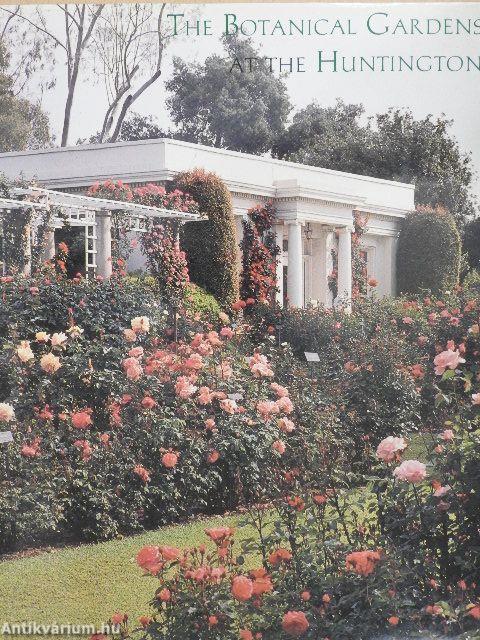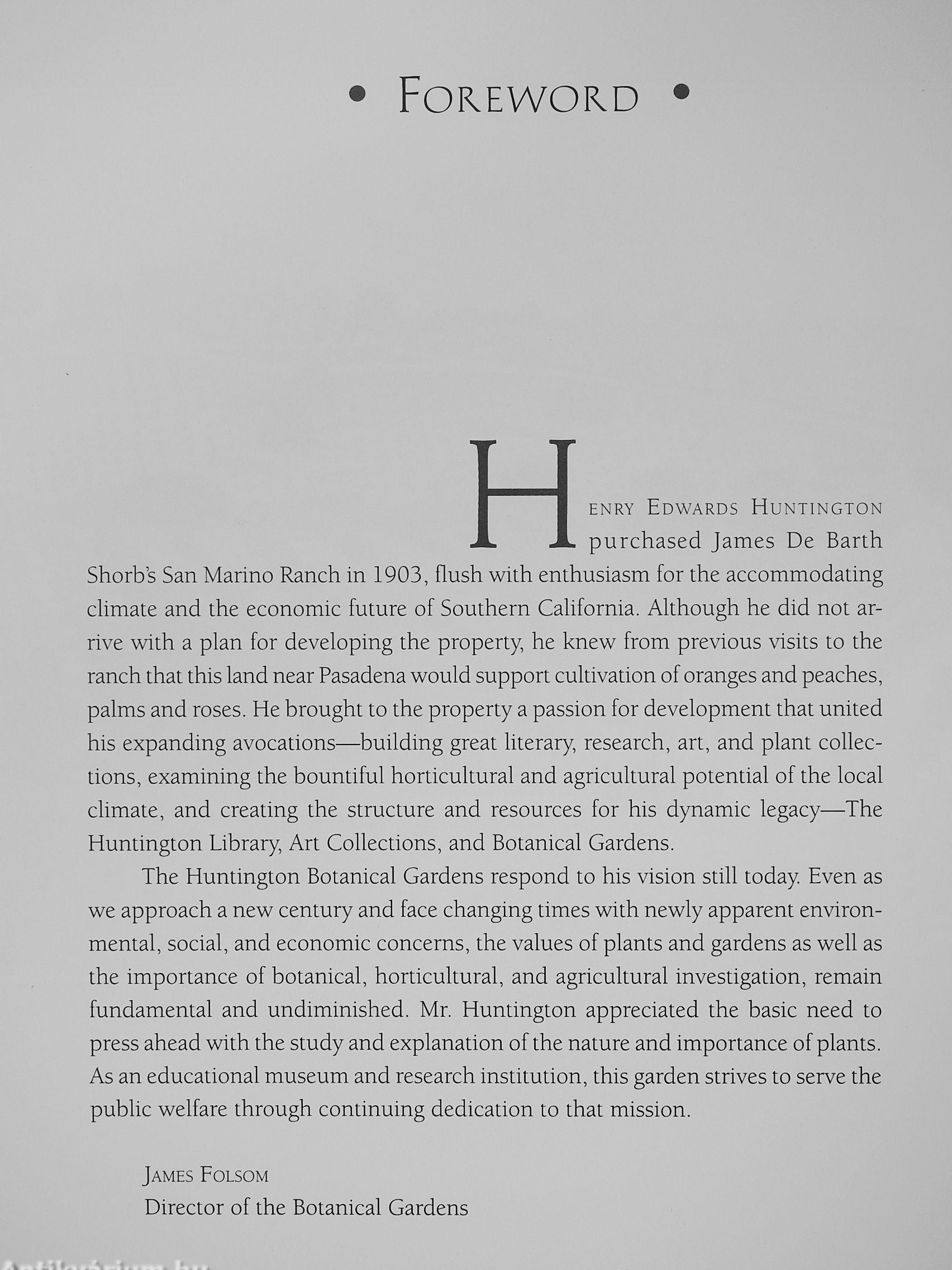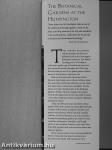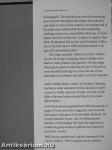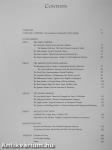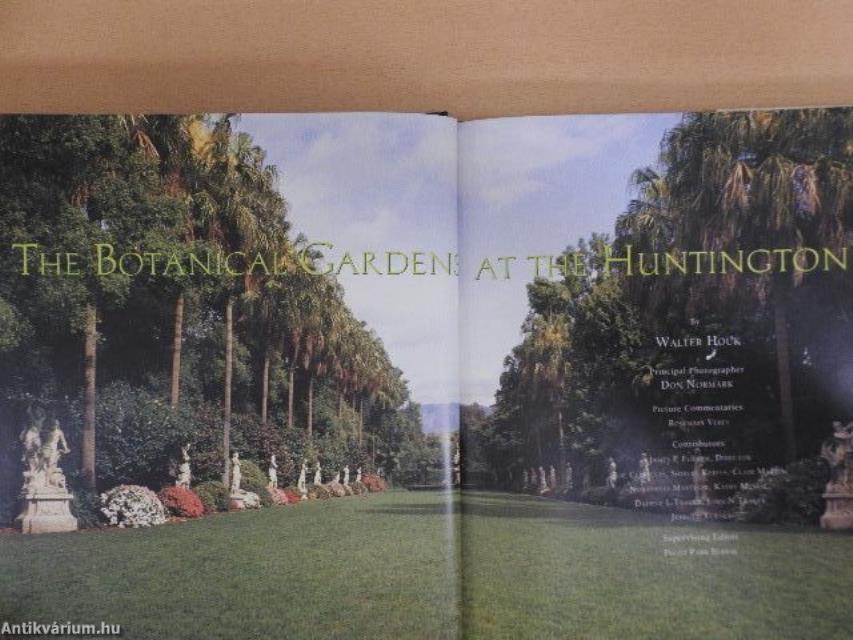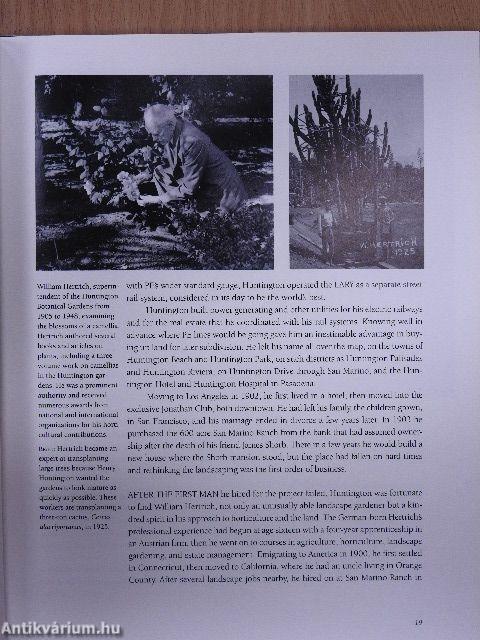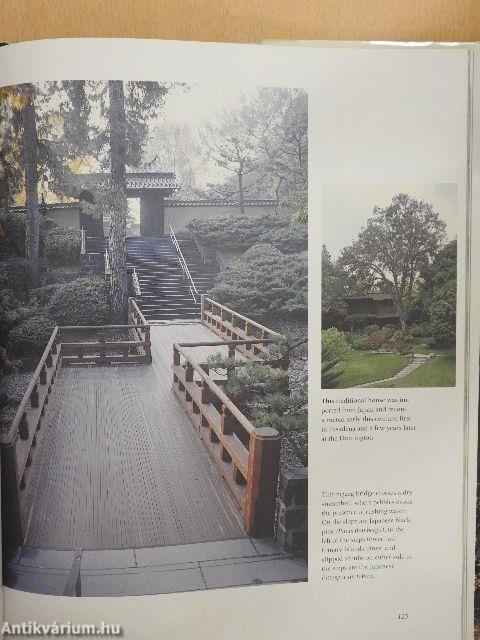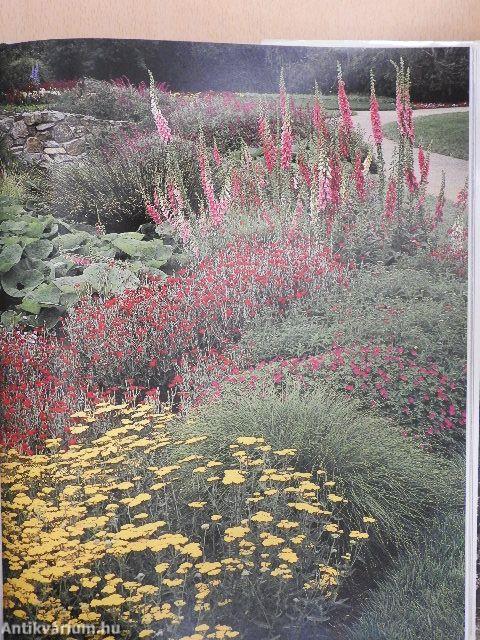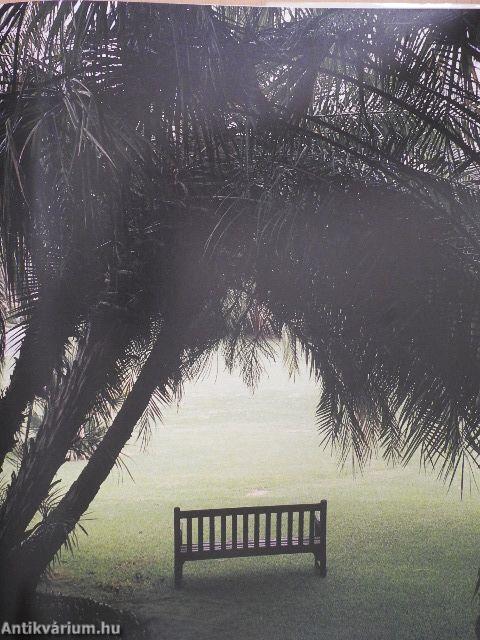1.067.308
kiadvánnyal nyújtjuk Magyarország legnagyobb antikvár könyv-kínálatát

VISSZA
A TETEJÉRE
JAVASLATOKÉszre-
vételek
The Botanical Gardens at the Huntington
| Kiadó: | Hungtington Library-Harry N. Abrams, Inc. |
|---|---|
| Kiadás helye: | San Marino-New York |
| Kiadás éve: | |
| Kötés típusa: | Vászon |
| Oldalszám: | 192 oldal |
| Sorozatcím: | |
| Kötetszám: | |
| Nyelv: | Angol |
| Méret: | 27 cm x 22 cm |
| ISBN: | 0-8109-6316-7 |
| Megjegyzés: | További kapcsolódó személyek a könyvben. Fekete-fehér és színes fotókkal. |
naponta értesítjük a beérkező friss
kiadványokról
naponta értesítjük a beérkező friss
kiadványokról
Előszó
TovábbFülszöveg
; I ' /, I l| '
I I
III;
' I i
The Botanical Gardens at the Huntington
"Some visitors see the Huntington estate as one of the world's most beauüful gardens. Some see the place as a living museum of the rare and wonderful in the world of plants, a laboratory for the pursuit of botanical and horticultural knowledge."
(from the introduction)
HIS LAVISHLY ILLUSTRATED volume presents the first-ever definitive look at the Huntington Botanical Gardens in San Marino. Growing out of of Southern California's golden age of horticulture from the late nineteenth century through the 1920s, they flourish today as one of the grand garden achievements of that glorious, optimistic era.
Railroad and real estate developer Henry Edwards Huntington was a collector widiout equal who assembled world-class collections of rare books and manuscripts, works of art, and plants. For the plants, he found a kindred spirit in his landscape gardener, William Hertrich; together they experimented with plants... Tovább
Fülszöveg
; I ' /, I l| '
I I
III;
' I i
The Botanical Gardens at the Huntington
"Some visitors see the Huntington estate as one of the world's most beauüful gardens. Some see the place as a living museum of the rare and wonderful in the world of plants, a laboratory for the pursuit of botanical and horticultural knowledge."
(from the introduction)
HIS LAVISHLY ILLUSTRATED volume presents the first-ever definitive look at the Huntington Botanical Gardens in San Marino. Growing out of of Southern California's golden age of horticulture from the late nineteenth century through the 1920s, they flourish today as one of the grand garden achievements of that glorious, optimistic era.
Railroad and real estate developer Henry Edwards Huntington was a collector widiout equal who assembled world-class collections of rare books and manuscripts, works of art, and plants. For the plants, he found a kindred spirit in his landscape gardener, William Hertrich; together they experimented with plants from all over the world in search of ones that would grow well in Southern California's subtropical climate.
Today the 206-acre estate has fifteen theme gardens filled with twenty thousand different kinds of plants with as many as eighteen hundred rose species and cultivars, twelve hundred camellia cultivars, and five thousand cacti and succulents. Among the specialized gardens are ones for roses, camellias, subtropical, Australian, and jungle plants as well as palms, bamboo, and water lilies. Especially popular with visitors are the desert and Japanese gardens.
Many unusual plants, from towering landmark trees to minuscule rare desert succulents are pictured in the book's 250 sumptuous color
CONTINUED ON BACK FLAP
FTTT.
CONTINUED FROM FRONT FLAP
photographs. The introduction tells the fascinating Story of how Huntington developed railroads and real estate in turn-of-the-century Los Angeles and at the same time transformed his self-supporting working ranch into a remarkable showcase of exotic plants from the world over. A native of upstate New York, Huntington fell in love with Southern California on his first visit in 1892 and determined to be part of its promising future.
The estate annually draws over half a million visitors of all ages including school children who learn to "read" plants in the gardens. All visits begin when guests park in what may be one of America's most beautiful parking lots, once the site of test plantings for eucalyptus and other trees from Australia.
Author Walter Houk, a native of Southern California, has been a writer and editor for four decades of publications in North America, Europe, and Asia in the fields of the arts, history natural history travel and allied subjects.
Don Normark's photographs have filled thousands of pages of Sunset and other magazines and are in the permanent collections of the Brooklyn Museum, the George Eastman House, and the Massachusetts Institute of Technology. His work has appeared in numerous group shows in galleries and museums across the country
Well-known garden book author Rosemary Verey (Secret Gardens, 1994) supplied photo caprion material. Vissza
Témakörök
- Természettudomány > Növényvilág > Nemzeti parkok, arborétumok
- Idegennyelv > Idegennyelvű könyvek > Angol > Művészetek > Építészet
- Idegennyelv > Idegennyelvű könyvek > Angol > Művészetek > Fotóművészet
- Idegennyelv > Idegennyelvű könyvek > Angol > Természettudományok > Egyéb
- Művészetek > Építészet > Kontinensek szerint > Amerika > Észak-Amerika
- Művészetek > Építészet > Idegen nyelv > Angol
- Művészetek > Építészet > Műemlékek > Egyéb
- Művészetek > Fotóművészet > Albumok > Tematikus
- Művészetek > Fotóművészet > Idegen nyelv > Angol
- Művészetek > Fotóművészet > Témái > Művészetek



